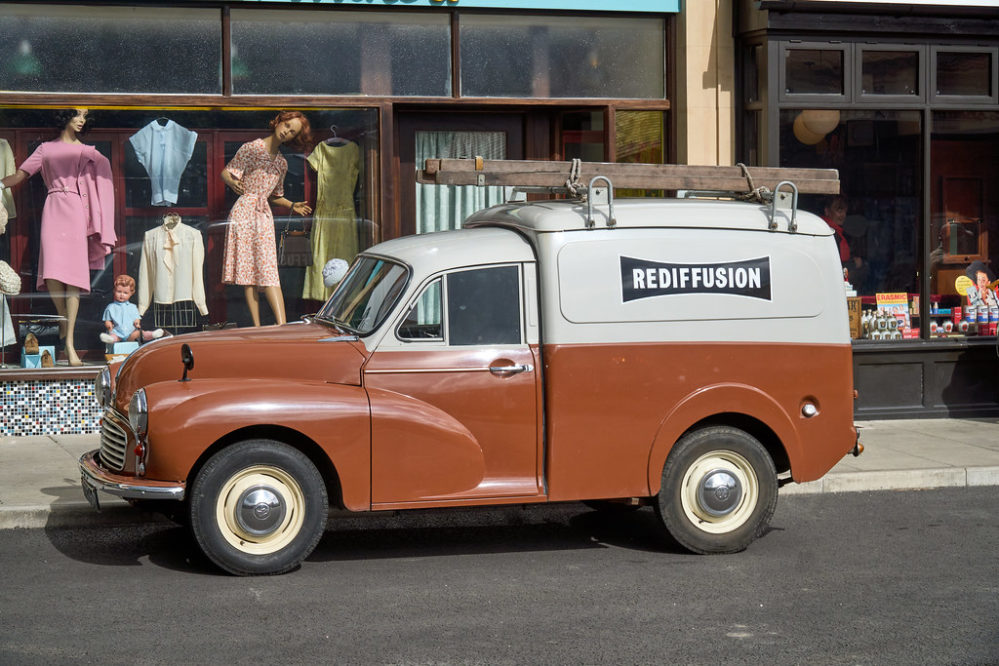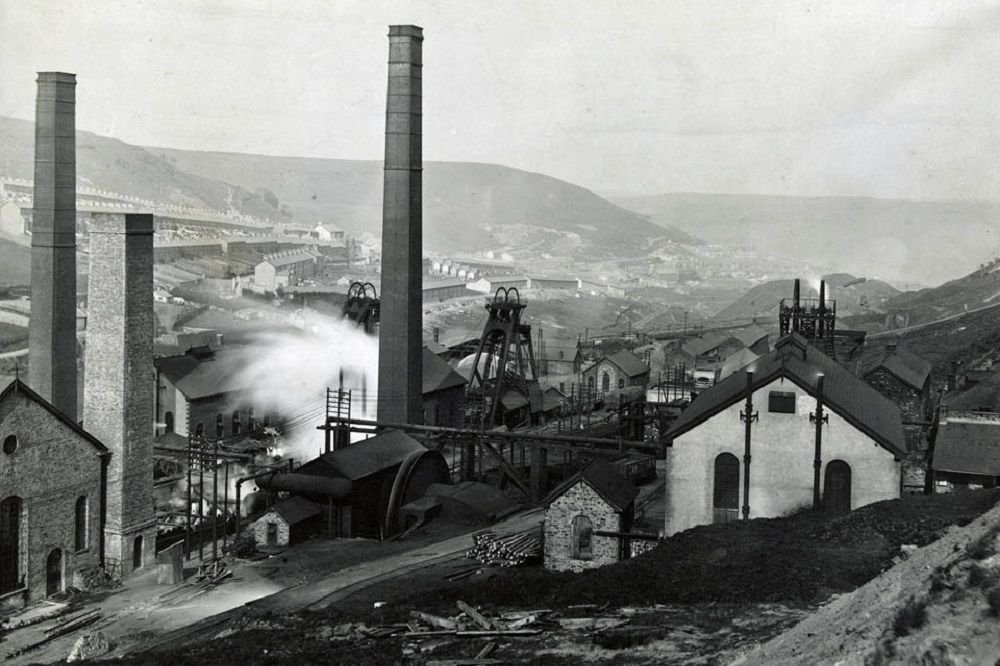Up The Rhondda! Trimming the Coalface for Christmas

Nation.Cymru is delighted to bring you a final seasonal extract from ‘Up The Rhondda!’ by John Geraint, which has just been published by Y Lolfa.
John Geraint
When do you ‘trim up’ for Christmas? In the last couple of years, my friends seem to be putting their decorations up earlier and earlier. With the way the world is, I suppose they reckon we need that extra bit of cheer just as soon as we can get it.
‘Trimming up’. It’s a good old Rhondda phrase for putting up the decorations… on the tree, all through the house and – increasingly, these days – outside it too. If you’ve never seen mid-Rhondda in mid-winter, you’re missing one of the Seven Wonders of modern Wales.
Don’t bother with an expensive cruise to the Arctic Circle in the hope of glimpsing the Northern Lights. Just head to Tonypandy. The cwm will have been transformed into a winter wonderland, terrace above terrace of illuminated Santas, multi-coloured sleighs and flashing reindeers lighting up our linear city from end to end.
As I was stringing the perfectly modest set of lights around my tree this last December, I was thinking about a letter that I’ve kept safe for more than 40 years now. It was a treasure worth keeping: a letter from a listener.
Letters
You see, the most rewarding thing about working in broadcasting is when the audience responds. These days, it’s emails or texts, posts on Facebook or that other platform that used to be called Twitter, sometimes a phone call. But back when I began my career, we used to get handwritten letters. And this one, in particular… well, you’ll see for yourself why I’ve cherished it ever since, even though it’s got a bitter twist in the tail.
It was the autumn of 1978. The BBC had – at long last – decided to launch a dedicated national radio station for Wales. It was a big moment. One of Wales’s most famous historians, John Davies (born in the Rhondda and brought up in Dumfries Street, Treorchy), points to the launch of Radio Wales as the most significant day in the whole history of the BBC in Wales.
For the first time, we had an all-day, stand-alone radio service of our own. But a new radio station needs an audience, and to help drum one up, in the weeks immediately before the launch, the BBC sent its mobile studio – a caravan – right into the heart of four communities across the country. Of course, the first of them just had to be the Rhondda.
Tune in
Back then, a radio station’s wavelength was crucial information for the audience. There were no automatic pre-sets or apps. You had to tune in to radio stations. You turned the numbered dial until the fuzzy signal changed and came through loud and clear.
So every station wanted to make sure you remembered the exact wavelength they were broadcasting on. Radio 1 had a famous jingle advertising its wavelength – ‘Radio 1 is wonderful… 247!’
So when the bosses of BBC Radio Rhondda asked young John Geraint to present an afternoon sequence aimed at a young Rhondda audience, I came up with a bit of patter for the show that I thought might be just as catchy. I blush to remember it: ‘Radio Rhondda, 202, through with you… till 7 o’clock, this is Rhondda Rock.’
Getting listeners to retune to a temporary, pop-up station like Radio Rhondda should have been a daunting, nigh on impossible challenge.
But we had a secret weapon: Rediffusion! Rediffusion was a cable TV company. Because the valley was so deep and narrow, television signals struggled to reach our aerials. Rediffusion solved the problem by piping four TV channels into almost every Rhondda home. What a choice!
There was a little Rediffusion box sitting on our living-room windowsill, with an upright switch on top for changing channels. And there were two bonus services you could turn to – radio stations, normally Radio 2 and Radio 4. But step forward Teleri Bevan, the visionary founding Editor of BBC Radio Wales.

Radio Rhondda
For the week we broadcast Radio Rhondda, Teleri persuaded Rediffusion to drop Radio 2 and carry our programmes instead. Instantly, we had an audience of tens of thousands. And the word got round. By the end of the week, it really did feel like everyone in the valley was listening.
When BBC Radio Wales launched a few weeks later, we took the lessons of Radio Rhondda with us. Radio Wales on the Road took over the national airwaves for a whole morning every week, ‘live’ and unedited, with a caravan and a roving radio mic on the streets of Treorchy or Tredegar, Wrexham or Rhyl.
It was the format we’d pioneered on Radio Rhondda. Rather than politicians and experts in a fusty old studio, we heard straight from the audience themselves, in the places they lived in: the sound of the real Wales, literally a breath of fresh air.
The audience drawn to this new sound was the one we’d courted on Radio Rhondda – ordinary people, not the ‘opinion formers’ who were the core listeners to BBC Radio 4 (apologies if you’re one!).
So when that first December came round for the new Radio Wales, and we asked listeners to write in sharing their stories of Christmas past, one of the letters came from someone who’d been a fan of Radio Rhondda, and had stuck with us on the fledgling national station. He was a proud former miner, Mr William Coombes of the Terraces in Llwynypia.
This is how his seasonal story began:
“Never a Christmas comes without one special memory for me of a strange and wonderful moment deep underground. There were some great characters underground in those days. I worked with them for 38 years and I don’t think we will see their likes again.”
Mr Coombes went on to describe one shift with his fellow miners.
“We were at the coalface when the shout came, ‘Grub up!’ We only had 20 minutes, so out came the Tommy Boxes with our bread and cheese. One of the boys was eating a raw onion that stank the place out. Anyway, Christmas was only a week away, and I said, for a joke, ‘What about trimming the coalface?’ Most of them had a good laugh, but the joke stuck with me and my butty, Josh Wilkins. As we walked out at the end of the shift, we decided that however much they laughed at us, we would bring down all the decorations we could get.
“Christmas Eve came, and my butty and me went down the pit with the trimmings. It was the afternoon shift and when the other fellows knew what we were up to, they all agreed to get the work done early. We all put our backs into it, jobs like prop drawing and clearing the coal from the face. Everything went according to plan and the time came to trim the coal face.
“We had the old electric lamps at that time. We hung them on wooden supports and put coloured paper through the lamp glasses. Then we dangled the trimmings from one pit prop to another. In the darkness of the mine, the effect was wonderful. It was the prettiest sight I’ve ever seen. And to finish it all off we sat down and sang carols. It was something I shall never forget. That Christmas Eve had a magic touch about it.”
And then, right at the bottom of the page, William Coombes wrote one final line – simple, heartbreaking, devastating. Because, yes, the pit where all this happened was the Cambrian Colliery in Clydach Vale.
“Ten years later,’ wrote Mr Coombes, ‘in 1965, many of my pals were killed in an explosion at the colliery.”

And that was it. The camaraderie and the characterful-ness, the toughness and the tenderness, the beauty and the tragedy of Rhondda’s mining experience, of so much of the Rhondda’s whole story, expressed with native eloquence in the span of one short letter. A letter, of course, that we shared on air with the whole of Wales.
William Coombes was right: we’ll never see the likes of him and his butties again.

Humanity
But there is something in that shared experience, in the way that Rhondda men and women have lived – something I’ve tried to represent and celebrate in the radio and TV programmes that I’ve made, and in my talks and podcasts – something that we need to hang onto, not out of any sentimental attachment to the past, but because it’s a glimpse of something humanity has always been searching for; because it points to way of living that’s fair shares and fair do’s for everybody, a world we can all enjoy the better, because it’s better for all of us.
Yes, it’s the promise of that Promised Land: of yet to come, none the less true. I can see it, shimmering in the distance. For all that’s changed, in the Rhondda and the wider world, we can reach it still.
‘Up The Rhondda!’ by John Geraint is published by Y Lolfa at £9.99. It’s available from any good bookshop, or directly from Y Lolfa.
John Geraint is one of Wales’s most experienced documentary film-makers. His acclaimed debut in fiction,The Great Welsh Auntie Novel, was published in 2022. In this new book based on his popular John On The Rhondda podcasts, John Geraint fixes – with a film-maker’s eye – the experience of life in this vibrant, globally-renowned mining community.
Support our Nation today
For the price of a cup of coffee a month you can help us create an independent, not-for-profit, national news service for the people of Wales, by the people of Wales.







